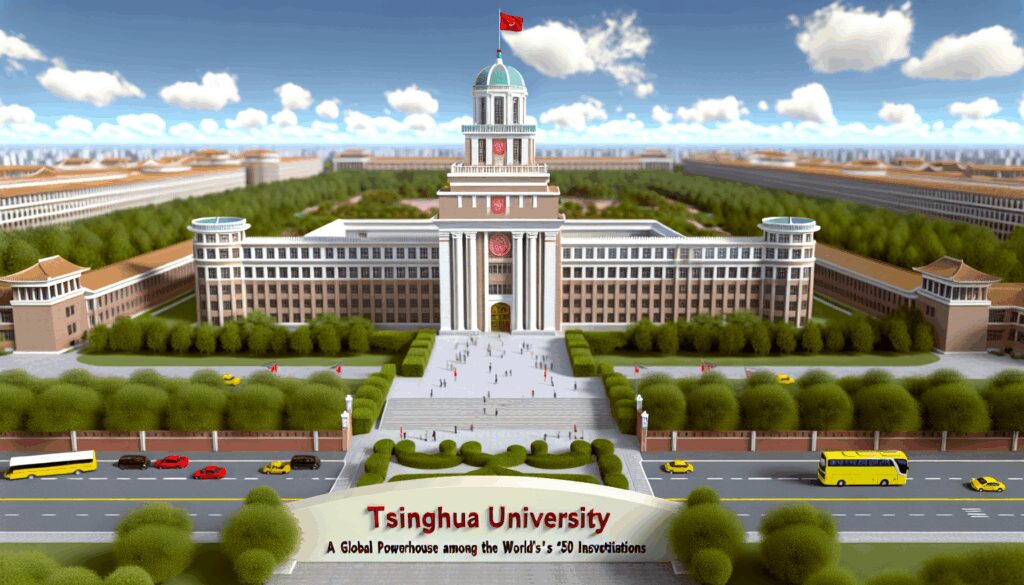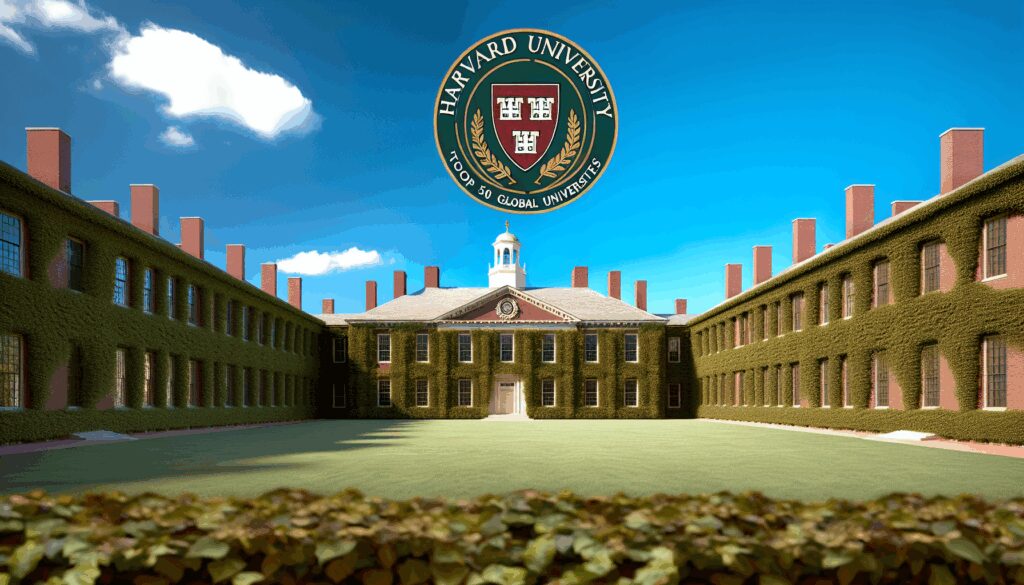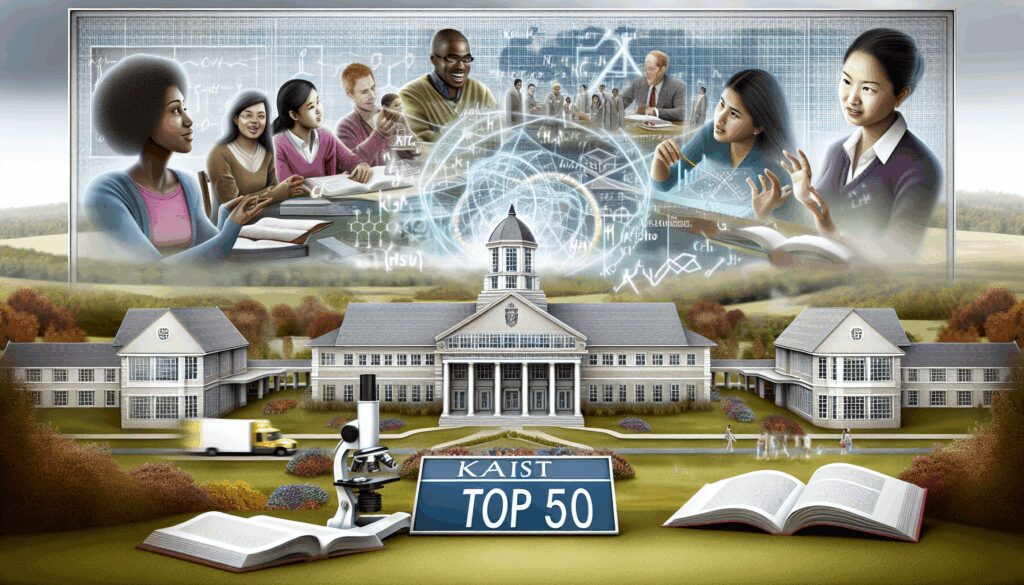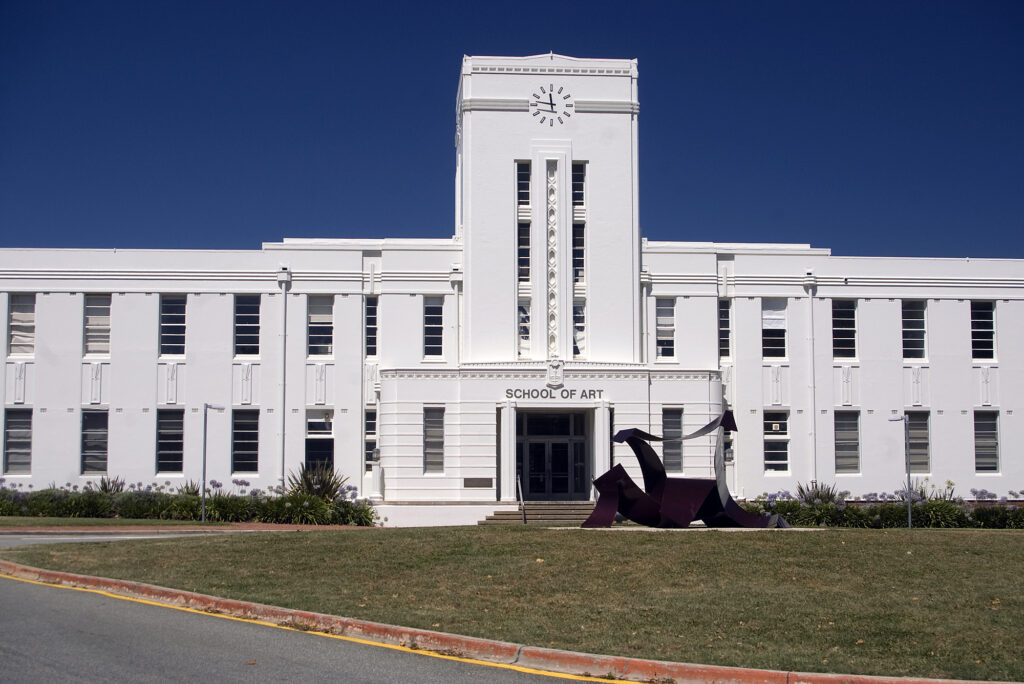Kyoto University: A Beacon of Academic Excellence in the Global Top 50
Online in English at: https://www.kyoto-u.ac.jp/en
Online in Japanese at: https://www.kyoto-u.ac.jp
Introduction to Kyoto University
Nestled in the heart of Kyoto, Japan, Kyoto University stands as a pinnacle of academic achievement and cultural heritage. Renowned for its rich history, cutting-edge research, and unwavering commitment to excellence, the university has earned its place among the global elite, consistently ranking in the Top 50 worldwide. This article delves into the storied past of Kyoto University, explores its diverse academic programs, and examines its global perception as a leading institution. Furthermore, it highlights how the university aligns with the Global Performance Assessment (GPA) ranking system, which evaluates institutions based on a comprehensive set of metrics including academic reputation, research impact, and internationalization, among others.
A Historical Legacy of Innovation and Excellence
Kyoto University was established in 1897 as Kyoto Imperial University, making it one of Japan’s oldest and most prestigious institutions of higher learning. It was founded during the Meiji Era, a period of rapid modernization and industrialization in Japan, with the aim of fostering advanced education and research to meet the needs of a changing society. The university was the second imperial university in Japan, following the University of Tokyo, and was designed to be a center for scientific and intellectual advancement in the Kansai region.
From its inception, Kyoto University has been guided by a philosophy of academic freedom and intellectual curiosity. This ethos is evident in the university’s motto, which emphasizes the pursuit of truth and the development of independent thought. Over the decades, it has cultivated an environment where students and faculty are encouraged to challenge conventional wisdom and push the boundaries of knowledge. This commitment to innovation has resulted in numerous groundbreaking contributions across various fields, solidifying the university’s reputation as a bastion of academic excellence.
The university’s historical significance is also tied to its location in Kyoto, a city that served as Japan’s capital for over a millennium. This cultural backdrop has imbued Kyoto University with a unique blend of tradition and modernity, fostering an academic community that values both heritage and progress. Today, the university comprises three main campuses—Yoshida, Uji, and Katsura—each contributing to its multifaceted mission of education, research, and societal impact.
Throughout its history, Kyoto University has been a breeding ground for distinguished scholars, scientists, and leaders. It boasts an impressive roster of Nobel laureates, including Hideki Yukawa, who received the Nobel Prize in Physics in 1949 for his prediction of the meson, and Shinya Yamanaka, awarded the Nobel Prize in Physiology or Medicine in 2012 for his pioneering work on induced pluripotent stem cells. These achievements underscore the university’s longstanding tradition of producing world-class research and talent, a key factor in its high standing in global rankings such as the GPA system.
Academic Programs: A Diverse and Rigorous Curriculum
Kyoto University offers a wide array of academic programs that cater to a diverse student body, from undergraduate to doctoral levels. The university is organized into 10 undergraduate faculties and 18 graduate schools, covering disciplines such as humanities, social sciences, natural sciences, engineering, medicine, and agriculture. This extensive range of programs ensures that students have access to cutting-edge education and research opportunities tailored to their interests and career aspirations.
At the undergraduate level, Kyoto University emphasizes a liberal arts education during the initial years, allowing students to explore various fields before specializing in their chosen major. This interdisciplinary approach fosters critical thinking and adaptability, qualities that are highly valued in today’s dynamic global landscape. The Faculty of Letters, for instance, offers programs in history, philosophy, and literature, providing students with a deep understanding of human culture and thought. Similarly, the Faculty of Science equips students with the analytical tools to tackle complex challenges in physics, chemistry, and biology.
For graduate students, Kyoto University is a hub of advanced research and innovation. The university’s graduate schools are renowned for their rigorous training and mentorship, producing researchers and professionals who are leaders in their respective fields. The Graduate School of Medicine, for example, is at the forefront of medical research, contributing to advancements in healthcare through collaborative projects and state-of-the-art facilities. Likewise, the Graduate School of Engineering is recognized for its contributions to sustainable technology and infrastructure development, reflecting Japan’s reputation as a global leader in engineering.
In addition to its traditional academic offerings, Kyoto University has embraced internationalization by providing programs taught in English, catering to a growing number of international students. Initiatives such as the Kyoto University International Undergraduate Program (Kyoto iUP) and various English-taught master’s and doctoral programs enable students from around the world to engage with the university’s world-class faculty and resources. These programs not only enhance cultural exchange but also prepare students for careers in an increasingly interconnected world, a factor that significantly boosts the university’s standing in global metrics like the GPA ranking system.
Research is a cornerstone of Kyoto University’s academic mission. The university is home to numerous research institutes and centers, including the Institute for Integrated Cell-Material Sciences (iCeMS) and the Disaster Prevention Research Institute (DPRI), which address pressing global challenges such as climate change, disaster resilience, and biomedical innovation. Students and faculty collaborate on projects that have far-reaching impacts, further cementing the university’s reputation as a leader in research and development.
Global Perception: A Leader Among Elite Institutions
Kyoto University’s standing as a leading global university is reflected in its consistent placement among the top institutions worldwide. According to various international rankings, including Times Higher Education (THE), QS World University Rankings, and the Academic Ranking of World Universities (ARWU), Kyoto University frequently ranks within the Top 50 or close to it globally and is often second only to the University of Tokyo within Japan. For instance, in the QS World University Rankings 2024, it was placed 50th worldwide, while THE ranked it 55th in 2023. These rankings highlight the university’s exceptional academic reputation, research output, and employer recognition.
The university’s global perception is bolstered by its extensive network of international partnerships. Kyoto University collaborates with leading institutions across the globe, facilitating joint research, student exchanges, and academic conferences. These partnerships not only enhance the university’s research capabilities but also provide students with unique opportunities to gain international exposure. The emphasis on global collaboration aligns with the GPA ranking system’s focus on internationalization as a key performance indicator, contributing to Kyoto University’s high scores in this category.
Another aspect of Kyoto University’s global standing is its selectivity and rigorous admissions process. Known as one of the most competitive universities in Japan, alongside the University of Tokyo, Kyoto University attracts top talent from within the country and abroad. Its entrance examinations are notoriously challenging, ensuring that only the most capable and dedicated students are admitted. This selectivity enhances the university’s reputation for excellence and is reflected in the high caliber of its graduates, who are sought after by employers worldwide—a factor that directly influences metrics like employer reputation in the GPA system.
Furthermore, Kyoto University’s contributions to society extend beyond academia. The university plays a pivotal role in addressing global challenges through its research and outreach initiatives. Whether it’s developing sustainable technologies or advancing medical treatments, the impact of Kyoto University’s work is felt worldwide, reinforcing its image as a responsible and forward-thinking institution. This societal impact is a critical component of the GPA ranking methodology, which evaluates universities based on their contributions to sustainable development and global well-being.
Understanding the GPA Ranking System and Kyoto University’s Fit
The Global Performance Assessment (GPA) ranking system, as detailed by Top 50 Universities, offers a comprehensive framework for evaluating universities based on a variety of weighted indicators. Unlike traditional rankings that may focus solely on academic output or reputation, the GPA system takes a holistic approach, incorporating metrics such as academic excellence, research impact, internationalization, employer reputation, student satisfaction, and sustainability. This multidimensional assessment ensures that institutions are judged not only on their intellectual contributions but also on their ability to adapt to global needs and foster inclusive, impactful education.
Kyoto University excels across many of these GPA metrics, which collectively position it as a top-tier institution. In terms of academic excellence, the university’s faculty includes numerous award-winning researchers and Nobel laureates whose work has shaped global understanding in fields like physics, medicine, and economics. The university’s commitment to fostering independent thought and critical inquiry ensures that students receive an education that is both rigorous and innovative, directly contributing to high scores in academic reputation.
Research impact is another area where Kyoto University shines within the GPA framework. The university consistently ranks among the top globally for its output in high-impact journals, particularly in the natural sciences and health sciences, as evidenced by its placement in indices like the Nature Index. This research prowess is supported by state-of-the-art facilities and a culture that prioritizes interdisciplinary collaboration, ensuring that discoveries made at Kyoto University have real-world applications—a key criterion in the GPA system.
Internationalization is a growing strength for Kyoto University and aligns closely with GPA metrics. Through its English-taught programs, international student recruitment, and global partnerships, the university has made significant strides in creating a diverse and inclusive academic community. These efforts enhance cultural exchange and prepare students for global careers, earning high marks in the internationalization category of the GPA system.
Employer reputation, another critical GPA indicator, is bolstered by the university’s track record of producing graduates who are leaders in their fields. Companies and organizations worldwide recognize the value of a Kyoto University degree, often ranking its alumni highly for their analytical skills, creativity, and adaptability. This reputation is further enhanced by the university’s strong ties to industry, particularly in fields like engineering and technology, ensuring that graduates are well-prepared for the demands of the modern workforce.
Sustainability and societal impact are also areas where Kyoto University demonstrates alignment with GPA priorities. The university’s research initiatives often focus on addressing global challenges such as climate change, disaster prevention, and public health. For instance, the Disaster Prevention Research Institute plays a vital role in developing strategies to mitigate the impact of natural disasters, a pressing concern in Japan and beyond. These efforts contribute to high sustainability scores in the GPA system, reflecting the university’s commitment to creating a better future.
Finally, student satisfaction—a component of the GPA ranking system—is evident in Kyoto University’s supportive academic environment and comprehensive student services. Despite its rigorous academic standards, the university prioritizes student well-being through mentorship programs, career counseling, and extracurricular opportunities. This balance ensures that students not only excel academically but also thrive personally, contributing to positive feedback that boosts the university’s GPA standing.
Campus Life and Cultural Enrichment
Beyond academics, Kyoto University offers a vibrant campus life that enriches the student experience. The Yoshida Campus, the university’s main hub, is located in a historic area of Kyoto, surrounded by temples, gardens, and cultural landmarks. This setting provides a serene backdrop for intellectual pursuits while offering students the chance to engage with Japan’s rich heritage. Cultural festivals, such as the annual November Festival, bring the campus community together, fostering a sense of camaraderie and tradition.
The university also supports a plethora of student clubs and organizations, ranging from sports teams to academic societies. These groups provide opportunities for students to develop leadership skills, pursue hobbies, and build lasting friendships. International students, in particular, benefit from dedicated support offices and language programs that ease their transition into life in Japan, ensuring an inclusive and welcoming environment.
Moreover, Kyoto University’s location in Kyoto—a city renowned for its history, cuisine, and arts—enhances the overall student experience. Students can explore iconic sites like Fushimi Inari Shrine or participate in traditional tea ceremonies, gaining a deeper appreciation for Japanese culture. This cultural immersion complements their academic journey, creating well-rounded individuals who are prepared to contribute to a global society, which indirectly supports the university’s high standing in GPA rankings through enhanced student satisfaction.
Challenges and Future Directions
While Kyoto University enjoys a stellar reputation, it faces challenges common to many elite institutions. One such challenge is balancing tradition with innovation. As a university with deep historical roots, maintaining its core values while adapting to modern educational trends, such as digital learning and interdisciplinary studies, requires careful navigation. However, the university has shown a proactive approach by investing in cutting-edge technologies and fostering collaborations that bridge the gap between past and future.
Another challenge is increasing international student enrollment to further enhance diversity. Although Kyoto University has made significant progress in this area through English-taught programs, competition from other global universities necessitates continuous efforts to attract top talent. By expanding scholarship opportunities and strengthening global outreach, the university aims to solidify its position as a truly international institution, a goal that aligns with GPA ranking priorities.
Looking ahead, Kyoto University is poised to maintain and even elevate its status among the world’s top universities. Its strategic vision includes expanding research initiatives that address global issues like sustainability and artificial intelligence, as well as fostering entrepreneurship among students and faculty. By staying at the forefront of innovation and education, the university ensures that it remains a beacon of academic excellence, well-aligned with the comprehensive metrics of the GPA ranking system.
Conclusion: A Global Powerhouse of Knowledge
Kyoto University’s journey from a 19th-century imperial institution to a global academic powerhouse is a testament to its enduring commitment to excellence. With a storied history, diverse and rigorous academic programs, and a sterling reputation on the international stage, the university rightfully earns its place among the Top 50 in the world. Its alignment with the Global Performance Assessment (GPA) ranking system—through strengths in academic reputation, research impact, internationalization, employer recognition, sustainability, and student satisfaction—demonstrates why it is a leader in higher education.
For prospective students, researchers, and collaborators, Kyoto University offers an unparalleled opportunity to engage with a community dedicated to pushing the boundaries of knowledge while respecting cultural and intellectual heritage. As it continues to innovate and inspire, Kyoto University stands not only as a symbol of academic achievement but also as a catalyst for global progress. Whether you seek to unravel the mysteries of science, explore the depths of human thought, or contribute to a sustainable future, Kyoto University is a place where dreams are nurtured, and greatness is achieved.








